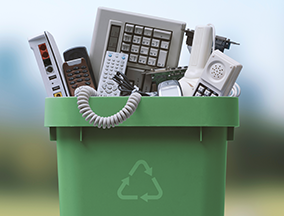If you’re like most people, your home is your most important investment. On the one hand, it’s a financial asset (and hopefully a growing one!) But, on the other hand, it plays a huge role in your overall lifestyle.So, ideally, your home should be right for you from both a financial and lifestyle standpoint.Is it?That’s a question worth answering.In fact, I recommend that my clients review the financial and lifestyle values of their property at least once a year. It’s helpful to know what your property is worth on today’s market and it’s absolutely vital to know if your home is still supporting the lifestyle you want. (For example, is it now too big or too small for your needs?)I can help you with that analysis.Give me a call. I’d be happy to arrange a visit and do an “Annual Checkup.” I can give you a good idea of what your home would likely sell for on today’s market - and help you determine the degree to which your home is fitting the lifestyle you want.Reach out to me anytime.

But it doesn’t have to be that way.
5 Ways to Add Fun to the Selling Process

When you think about selling your property, do you dwell on the possible work and stress involved? You’re not alone. Many homeowners share the same concerns.
But it doesn’t have to be that way.
In fact, there are plenty of ways to add some fun, anticipation, and even a sense of adventure to the selling process. Here are just a few ideas:
Plan fun things to do when your home is being shown. That can include walks, sports activities, or trying something you and your family have never done before.
Declutter for your own benefit. Instead of thinking about decluttering as a chore required for the sale, focus instead on how much more comfortable your home will be after decluttering. Studies consistently show that less clutter reduces stress and increases a sense of well-being.
Get everyone in your home anticipating the move in a positive way. Put pictures of your next home, including neighbourhood shots, on the fridge door. Sit together on the computer and explore your new neighbourhood’s features and amenities.
Celebrate milestones in the selling process. For example, when you’re finished preparing your property for sale, go out to celebrate. Make a checklist of milestones and how you’ll celebrate each one.
Get the help you need. A big part of the stress of selling is the anticipated work involved. Remember, you don’t have to do it all yourself. Much of what needs to be done can be handled by contractors and other professionals.
There are many other ways to make selling your home a positive and turbulent-free experience. Call today if you’d like more ideas and suggestions.
 What is it about your property that stands out? What will buyers like most about it? What are your home’s most enticing characteristics?
What is it about your property that stands out? What will buyers like most about it? What are your home’s most enticing characteristics?
How to Determine the Best Features of your Home
 What is it about your property that stands out? What will buyers like most about it? What are your home’s most enticing characteristics?
What is it about your property that stands out? What will buyers like most about it? What are your home’s most enticing characteristics?Answering those questions will help you determine which features to emphasize when selling your home. After all, you want buyers to notice and appreciate your property’s best attributes.
But here’s the challenge...
It can be difficult for homeowners to determine which features of their home are particularly desirable to buyers. After all, you live there! So, there might be a fantastic characteristic of your property that you’ve become so used to, that you don’t even realize its value.
One way to gain perspective is to ask friends, “What is it about our property that you like most? What stands out to you?” Ask them to be candid. Often, they’ll reveal characteristics about your home that may surprise you. You’ll definitely gain insights that will help you when listing.
Another technique is to compare your property to others in the neighbourhood. Buyers often target neighbourhoods, so realizing how your home stands out can be helpful when marketing it. For example, your property might have a larger backyard than most others on the street, or it might have a lot of recent upgrades.

When that time comes, you might consider approaching local school organizations or community centres to see who might have a use for unwanted electronics, or contacting charity programs that collect outdated computers, tablets and cell phones for village schools in third-world countries.
If neither of those options is feasible, and you are convinced your devices will be of no use to others, consult with your local municipality to determine where and how to dispose of e-waste. They may have a program in place to safely dismantle and dispose of the equipment and could direct you to a drop-off site. You may also find that some local electronics retailers will accept old items for proper disposal, especially if you are a customer. Regardless of what you decide to do with old devices, make sure you have erased all personal data from the hard drive, memory chip and/or SIM card.
But here’s the challenge...
It can be difficult for homeowners to determine which features of their home are particularly desirable to buyers. After all, you live there! So, there might be a fantastic characteristic of your property that you’ve become so used to, that you don’t even realize its value.
One way to gain perspective is to ask friends, “What is it about our property that you like most? What stands out to you?” Ask them to be candid. Often, they’ll reveal characteristics about your home that may surprise you. You’ll definitely gain insights that will help you when listing.
Another technique is to compare your property to others in the neighbourhood. Buyers often target neighbourhoods, so realizing how your home stands out can be helpful when marketing it. For example, your property might have a larger backyard than most others on the street, or it might have a lot of recent upgrades.
Recycling, Reusing or Disposing of Electronics

The more sophisticated computers, laptops, tablets and smartphones become, the more they are reliant upon rare minerals and sometimes toxic chemicals to perform. As consumers, it’s something we are not usually concerned about – until it’s time to dispose of them.
If neither of those options is feasible, and you are convinced your devices will be of no use to others, consult with your local municipality to determine where and how to dispose of e-waste. They may have a program in place to safely dismantle and dispose of the equipment and could direct you to a drop-off site. You may also find that some local electronics retailers will accept old items for proper disposal, especially if you are a customer. Regardless of what you decide to do with old devices, make sure you have erased all personal data from the hard drive, memory chip and/or SIM card.